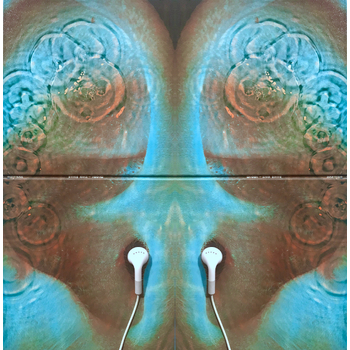GOLD MEDDLE
Author: Bruce Jenkins Date Posted:10 February 2023

Pink Floyd’s 1971 album Meddle is the essential connection between the early band and the world-conquering titans of 1973’s Dark Side Of The Moon.
Although its predecessor Atom Heart Mother was released, following numerous delays, in mid-1970, that experimental record and its famous 'cow cover' are rooted in psychedelia and whimsy; a Sixties album that limped into the Seventies. Meddle, by way of contrast, is where the band truly coalesced around the creative quartet of Roger Waters, David Gilmour, Richard Wright and Nick Mason. It is their first major statement of intent, an announcement to the world. 'We are ambitious, we are progressive, we push the boundaries of rock'.
The approach by which Floyd slowly built and compiled tracks from fragments and phrases was aided by the band’s new deal with their record company. They accepted a reduced royalty rate in exchange for unlimited studio time. Thus, they found themselves in Abbey Road studios with its 8-track recording desk, and soon Air studios with its more versatile 16-track facilities. The studio technology was particularly important for the centrepiece of the album, the epic "Echoes". One of the early fragments was a single repeated piano note, sharply struck near the top of the instrument’s register by keyboard player Richard Wright and pushed through a Leslie speaker. The rotating device created the mysterious yet hypnotic sonar 'ping' that begins "Echoes" and was the seed that grew into a twenty-three minute journey as captivating today as it was half a century ago.
The ambition of "Echoes" is matched by its lyrical component which tackles nothing less than the birth of life itself.
“No one knows the wheres or whys
But something stirs and something tries
And starts to climb towards the light”
There is a build up of power and tension through a funky instrumental section that finds release, not in a big rock climax but paradoxically in disintegration… a collapse. It is the last, glorious example of Pink Floyd exploring an unstructured collage of sound, a final farewell to midnight ramblings for tripped out hippies. After Meddle their music is worked, sanded, buffed, meticulously presented with a knowing awareness of the theatre of it all. Here we have something primal, daring, and chaotically scintillating. Yet the chaos is not allowed to take over; order is reestablished, gently, deftly, and "Echoes" conjures its own satisfying conclusion. For many Floyd fans, this immersive inner-outer journey remains a high point of their creativity.
Yet Meddle is no one-sided record. The first side is equally important as both a context for the extended piece and for providing contrast.
Opening track "One Of These Days" is, without doubt, one of Pink Floyd’s finest compositions, a deliriously chugging space-rock tour-de-force that features Roger Waters’ echoing bass, backwards cymbals and some serious growling by drummer Nick Mason. It’s a total blast that was a key part of the band’s set both at the time and in the years after Waters’ acrimonious departure.
"A Pillow Of Winds" follows; a gentle reverie after the steampunk thrust of "One Of These Days". It is almost a throwback to an earlier, more innocent time when Syd Barrett wrote of gnomes and dandelions. Then we move on to "Fearless", an unusual song that presages some of the existential dread so memorably captured on Dark Side Of The Moon. The football crowd bellowing "You’ll Never Walk Alone" simply adds to the strange disjunction of group cohesion and personal isolation.
A persuasive argument can be mounted that Meddle is six minutes short of unparalleled brilliance. The final two songs on the first side seem to let the team down; the lightweight, incongruously chirpy "San Tropez" and the throwaway blues-with-dog, "Seamus". I have sometimes wondered what would have happened if the band had re-worked and recorded concert staple "Embryo" to close out the side. Would Meddle have become as lauded and much loved as the two albums that followed it? Still, the LP released in October 1971 did very well, cementing the band’s popularity in Britain and paving the way for more touring in the USA. Certainly the band’s mystique was in no way diminished by the eye-catching gatefold cover by Floyd designers-of-choice Hipgnosis. It is a piece of artwork that still puzzles listeners today, while the music within continues to argue powerfully that progressive rock is both entertaining and interesting. You just need open ears.
© Bruce Jenkins—February 2023
Comments (1)
Meddle
By: Donna on 16 February 2023It is without a doubt one of Floyd's finest albums.


